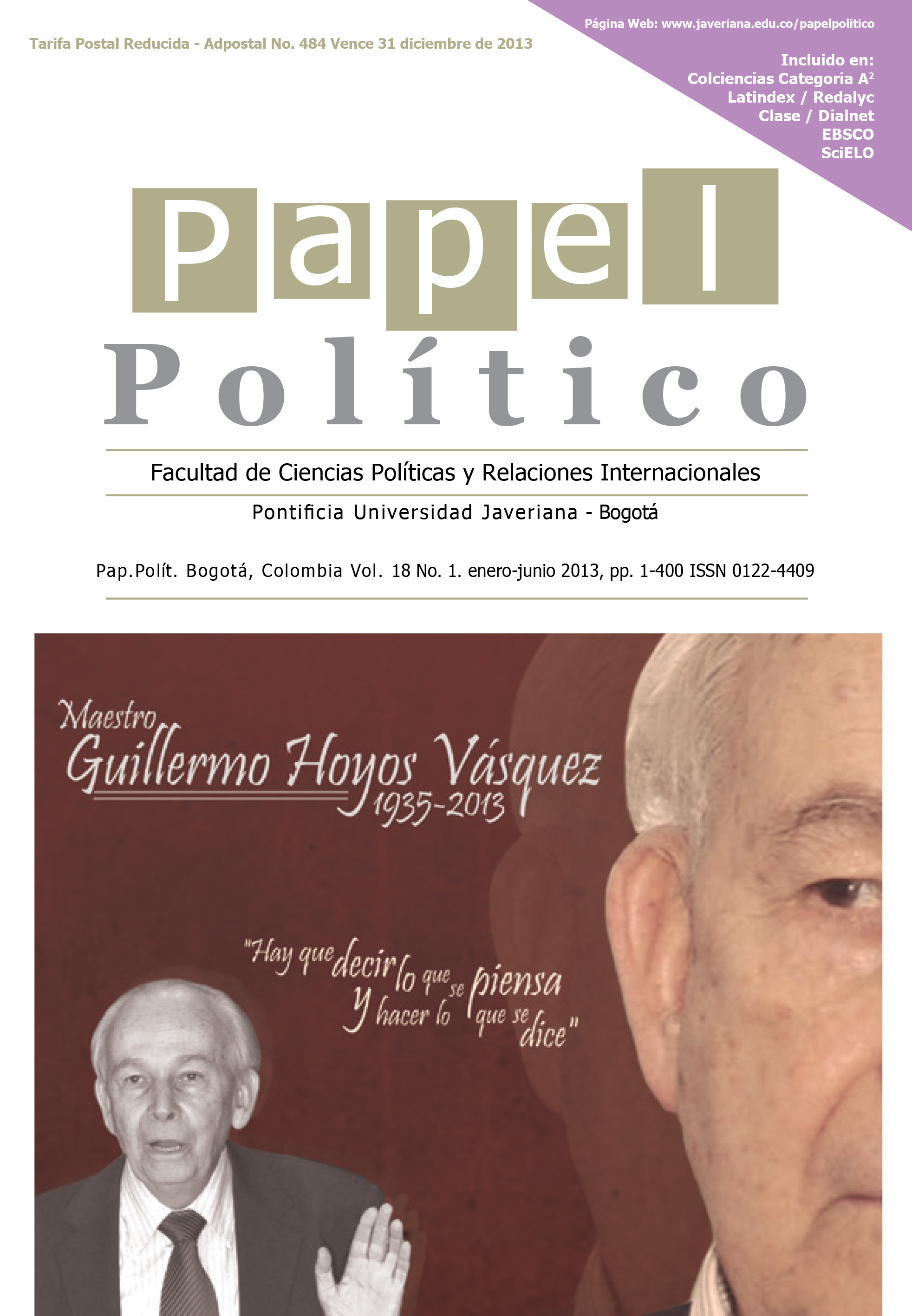Abstract
The current Colombian foreign policy has been designed almost exclusively by the Government. Human rights violations; disregard for the principle of democratic ownership in international cooperation; internal armed conflict; socio-environmental problems in trade and investment issues - among others - are the internal problems that the national and international NGOs evidence and transmit, preventing Colombia to achieve the image it would have on the international scene: a post-conflict country that respects human rights, a partner with whom make social and environmental sustainable business. In the issues of regional and global agenda, civil society is making proposals that deviate from the traditional foreign policy based on the Respice polum. The foreign policy of President Santos is based on consensus building and use of international cooperation. But it seems to respond to government interests, without due regard to societal interests. The Government of Santos decided not to consult NGOs for the design and monitoring of its foreign policy, and the consequence is parallel diplomacy.This journal is registered under a Creative Commons Attribution 4.0 International Public License. Thus, this work may be reproduced, distributed, and publicly shared in digital format, as long as the names of the authors and Pontificia Universidad Javeriana are acknowledged. Others are allowed to quote, adapt, transform, auto-archive, republish, and create based on this material, for any purpose (even commercial ones), provided the authorship is duly acknowledged, a link to the original work is provided, and it is specified if changes have been made. Pontificia Universidad Javeriana does not hold the rights of published works and the authors are solely responsible for the contents of their works; they keep the moral, intellectual, privacy, and publicity rights.
Approving the intervention of the work (review, copy-editing, translation, layout) and the following outreach, are granted through an use license and not through an assignment of rights. This means the journal and Pontificia Universidad Javeriana cannot be held responsible for any ethical malpractice by the authors. As a consequence of the protection granted by the use license, the journal is not required to publish recantations or modify information already published, unless the errata stems from the editorial management process. Publishing contents in this journal does not generate royalties for contributors.


